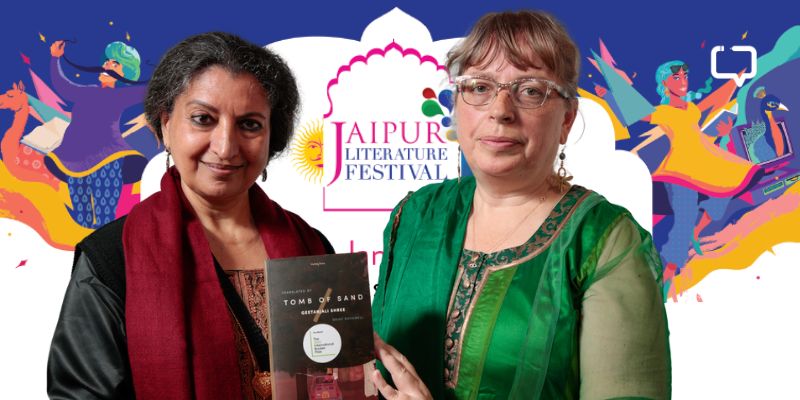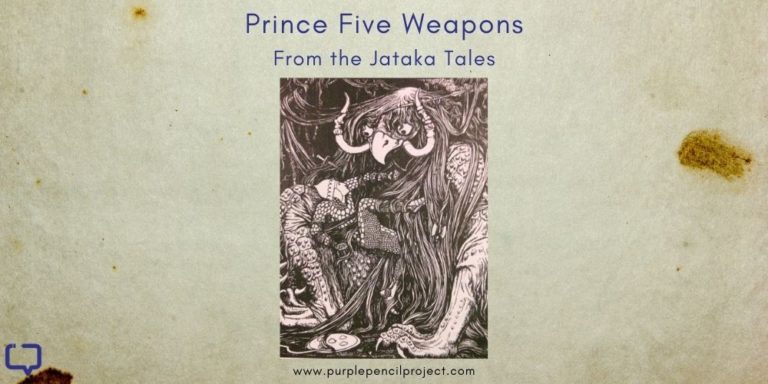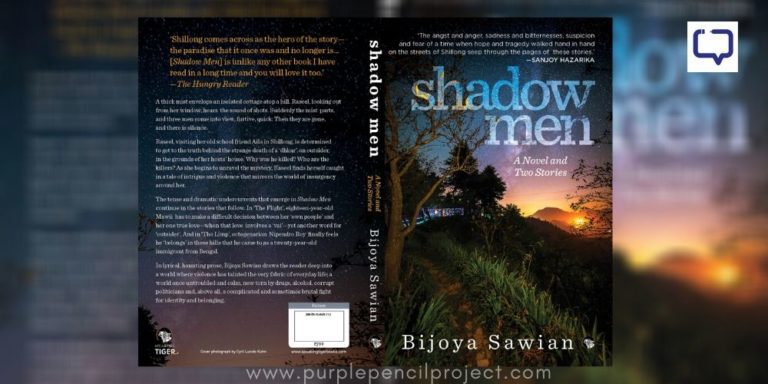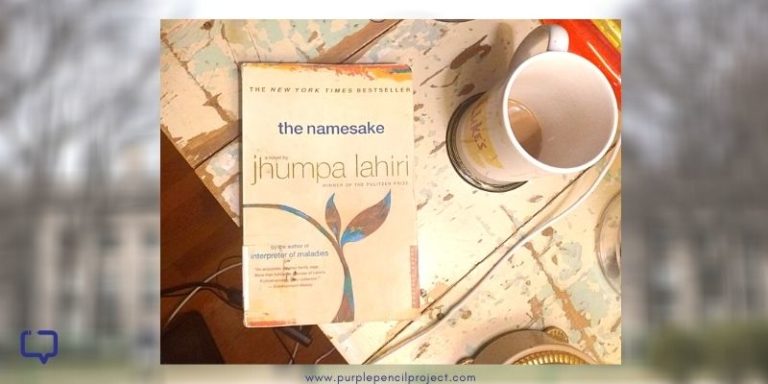Team Purple Pencil Project spoke to Daisy Rockwell at the Jaipur Literature Festival this year held in January 2023 at Jaipur, the 2022 Booker Prize-winning translator for her work Tomb of Sand (Originally written in Hindi by Geetanjali Shree as Ret Samadhi).
Daisy Rockwell is an American Hindi and Urdu language translator and artist. She has translated a number of classic works of Hindi and Urdu literature, including Upendranath Ashk’s Falling Walls, Bhisham Sahni’s Tamas, and Khadija Mastur’s The Women’s Courtyard.
Her 2021 translation of Geetanjali Shree’s Tomb of Sand was the first South Asian book to win the International Booker Prize. Rockwell was awarded the 2023 Vani Foundation Distinguished Translator Award by the Vani Foundation and Teamwork Arts, during the 2023 edition of the Jaipur Literature Festival. (Source)
Excerpts from the interview.
Team P3: How is your experience been at JLF this year?
Daisy Rockwell: Well, it’s been a bit hectic. I’m in India for the first time after five years because of the pandemic, and then there’s been the Booker Award, so my time is not my own and it’s been very busy.
Team P3: Can you briefly walk us through how you translate, because it’s often difficult to capture the regionalities on all these different things that come back, especially without knowing the actual language? Let’s say when you’re translating with Somali. So how do you go about translating that? What’s your process?
Daisy Rockwell: I usually do a first draft. That’s very rough. I write it by hand and I don’t try to solve big problems in that. I just try to get the whole thing down in English because it’s a big mess. There are notes everywhere in drawings and things like that.
And then I type it in on the computer. After which, I start reaching out to people if I need something in a dialect or you know, it’s Punjabi or you know, some other language. So, I reach out to people to help me. Then I get more into the dictionary zone of translation, but I always ignore all the poetry and songs.
You see, there’s always a lot of poetry and songs in Hindi and literature. So I leave them in the original language until maybe five drafts because it’s a different thought process to translate that kind of thing. I usually take about 10 drafts to be ready to go to an editor. I always tell people it’s the minimum you should do- 10 drafts – because you have to make a journey from the original text into the new text and some things you don’t notice that sound bad or you’re doing wrong until you’re like on the sixth or seventh drafts.
Suddenly something pops up because it’s becoming an English piece of writing and you then realize there’s a lot that’s been done.
You have to recreate the voice of the author in a new language.
Daisy Rockwell
Team P3: Okay, you go through that many drafts and after that also there’s the editing process. Is that a difficult process? Can you like, walk us through the thing? Because when you’re translating that you also have a book in mind because you are also translating as a reader also. So, how does that work out? How do you go about it thinking that I want to keep it this way? Because in your mind it might be something different, but do you think that it’ll be better for the target audience in a different way?
Daisy Rockwell: You have to recreate the voice of the author in a new language. It becomes almost mystical because you have to channel the author’s voice in a new language. You have to think like, what would the author say, if they were writing in English, how would they handle this?
That’s kind of how I do it. It’s sort of, um, empathy and kind of channeling and a very mystical type of process.
Team P3: At what, what point do you let go of the original text and read only the translation and sort of not compare or just check if you’ve covered everything?
Daisy Rockwell: Well, by the third draft or something like that, I’m usually not spending very much time with the original, so pretty early on. But there are times when you have to go back because you realize something is off or you even skip things sometimes because your eye just jumps around and you realise that doesn’t make sense. Then you go and find out you left out three sentences or something like that.
You have to go back sometimes, but by, you know, like the seventh or eighth draft, it’s the original is no longer in the picture. I always tell my mentees, the people that I work with, that, um, you have to say goodbye to the Hindi text and embrace the English text. Only by doing that can you make it come alive in a new language.

Team P3: How has your life changed after the Booker?
Daisy Rockwell: Well, the Booker changes everything because you know, translators often work in the shadows and are kind of invisible figures. After the Booker, you suddenly step out of the shadows and, it’s an unusual feeling.
We don’t do it for fame and glory, so having fame and glory is kind of bizarre.
Team P3: How do you go about your translation process? How do you prepare yourself for your, day in translation?
Daisy Rockwell: I usually do it in the afternoon. I walk a lot in the morning. I live in the country, so I take a long walk and have lunch, and then I get to work. Usually, I’m working on a few projects that are in different phases. Those first drafts are by hand, or I’m just kind of alone with the original text. And then I might be, working on something else that I’m polishing.
My translation really took off when I became a mother because my time was kind of cut up.
Daisy Rockwell
It will be like maybe two hours of each scattered through the rest of the afternoon. And as I’ve said a bunch of times, my translation really took off when I became a mother because my time was kind of cut up, you know? It was something that I could squeeze into little segments. My daughter’s a dancer, so I take her to dance class and I can just sit in the waiting room and write up. People have no idea what I’m doing, but I just sit, scribbling away. There’s music coming from three different places but I don’t mind. Parents coming or little girls in tutus and things like that.
Team P3: What are you reading right now? What can we expect from you next?
Daisy Rockwell: I am currently working on Geetanjali’s only untranslated novel – Hamara Shaher Uss Baras. translated novel.
It’s political work. We’ve had to kind of sit down before we decided we would do this and say, yes. We’re prepared for the political ramifications of getting this workout, but it seems so important, right? So I’m working on that. And then on a 1955 Urdu novel, that’s by a Pashtun woman author, and I like to say it is a middle March meets magic mountain in the northwest frontier provinces. There’s this fiercely intellectual heroine, and she has tuberculosis. She’s always reading Marks and Tolstoy, and she wants to fall in love. But all the men that she meets are kind of intellectually weak in her opinion. It’s just an amazing feminist novel that I adore.
Team P3: Please also tell us about what you’re reading. Are you reading outside of this?
Daisy Rockwell: Well, right now I can’t read it all because we’re just like racing around the time. Actually, when you ask me that, I’m literally drawing a blank. But I have some books in my suitcase I’m trying to read Beloved Ramala by Shaheen Akhtar translated by my friend Shabnam Nadia. So that is on the agenda.
Team P3: Ret Samadhi and Tomb of Sand, read like very different books. Both of them are still prose poems, in their own right, in their own languages. How did you manage to do that because that’s quite an arduous task? Just to start thinking of translating that book is a task in itself my opinion. So, to do that, and make it a very flowing prose poem in the target audience’s language, how was that? And how is that different or similar to your experience of translating Hamaara Shahar Uss Baras?
Daisy Rockwell: One thing about Ret Samadhi that I didn’t understand till I was actually done is that it’s really like, a huge prose poem. And so that made it very, very difficult to translate. And I had to recreate rhythms and things like the way you do with poetry rather, because there’s hardly any sentences that are just like she walked across the room and, you know, opened the cabinet or, you know, None of it is like that.
It’s a huge poem. In poetry, you have to transform in all different ways and capture feelings and rhythms and that kind of thing. So that’s one thing. And then, of course, Hindi is very different. It is a much earlier work, much less experimental, even though, I mean, it has its experimental elements.
You certainly see the seeds of that other writing are in there and even images and things like that you see the transfer. But, it’s still easier in some ways, but surprisingly uneasy in other ways. Like you may think as a reader, cuz you’re reading it that, oh, this is much simpler, but she still has these strange images.
That’s like once you break them down, Wait, what is she doing? Do you know? That takes a lot of work to recreate in a kind of comprehensible form, like right on the first page. I think there’s this thing about the teeth and gums. Being compared to the flowers on a vine. And that took me quite a while to unpack that and, you have to read the whole book to really understand why she put it there in the first place.
It comes very near the end. It’s foreshadowing, but yeah, I had to read the whole book to be able to translate this one or two sentences at the beginning.
Team P3: You translate from Urdu and Hindi, both. Do you have two different processes for these two languages? How do you make sure that you don’t carry over? You don’t have a hangover from Urdu when you do Hindi or vice versa?
Daisy Rockwell: No, it’s the same process, but, the literature is different in the sense that Urdu is a much more set kind of medium.
So, I can find all the words I need in the dictionary pretty much whereas Hindi people are making stuff up all the time or it’s like out of dialects and things like that. It is a much clearer path, even though I came to Urdu later. My vocabulary is pretty weak. I still have to look up a lot of words, but, on the other hand, it’s a more straightforward kind of process.
You can also watch the interview on our YouTube channel.





















